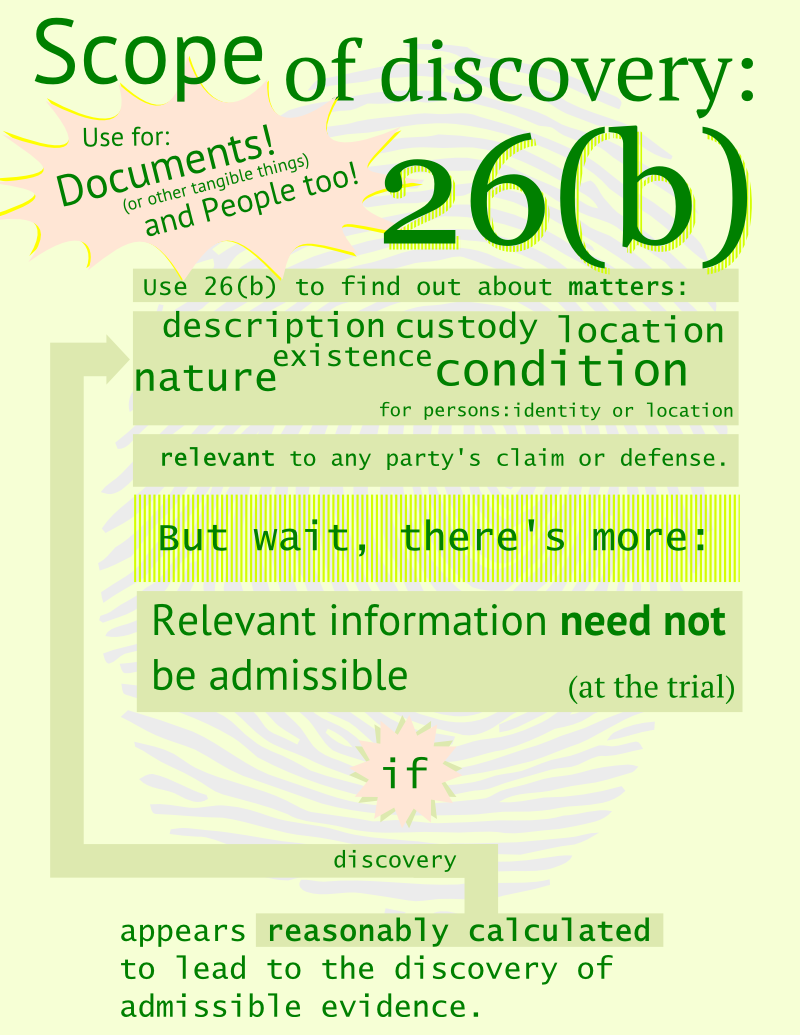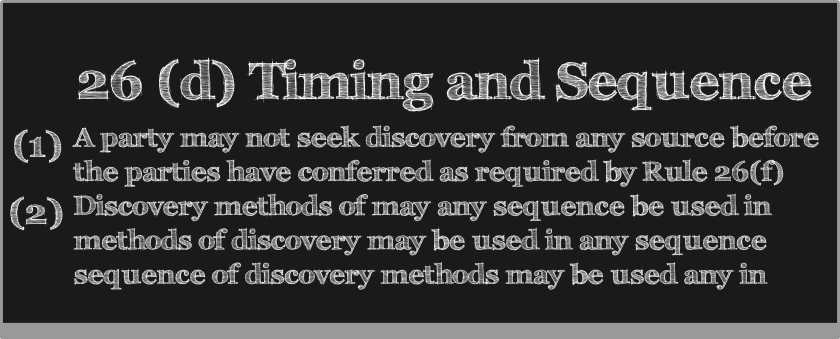It will do. Added to the FRCP page.

It will do. Added to the FRCP page.
Rule 56 added to the FRCP page.
I added a graphic to the FRCP page today.
Added to FRCP.
Don’t fall asleep. There are better ones on the FRCP page.
I do not know if this gets it done, but it works for now. More at FRCP page.
Motion to Compel added to the FRCP page.
How about a little supplement?